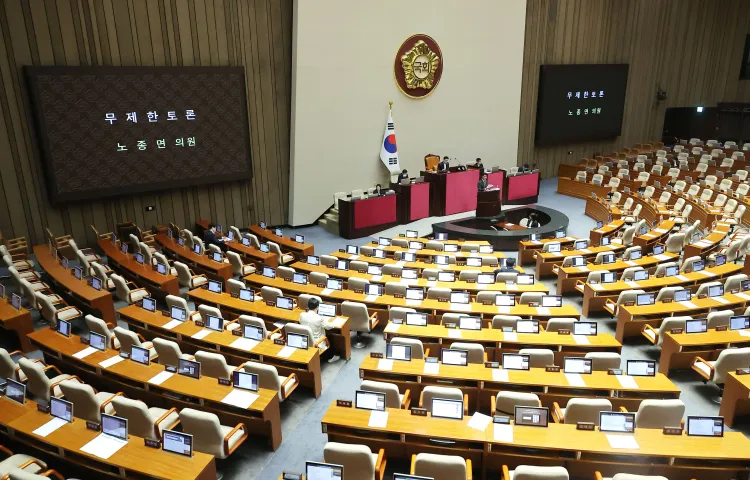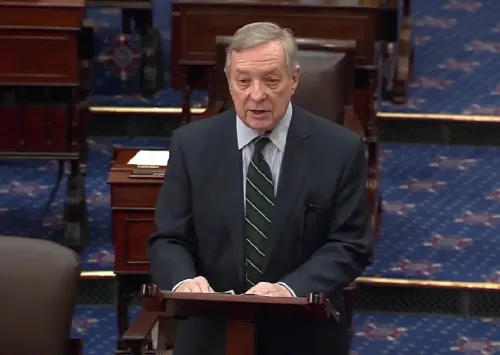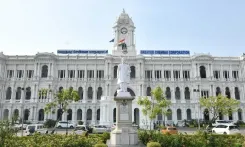Will South Korea's National Assembly Pass the Controversial Broadcasting Bill Amidst Opposition Filibuster?

Synopsis
Key Takeaways
- Controversial broadcasting bill poised for vote.
- Main opposition party conducting a filibuster.
- Proposed changes to public broadcast governance.
- KBS board expansion from 11 to 15 members.
- Political tensions highlight media independence issues.
Seoul, Aug 5 (NationPress) The National Assembly is poised to cast a vote on a highly debated broadcasting bill designed to minimize the government's control over public broadcasters on Tuesday. This vote comes as the main opposition's filibuster, aimed at obstructing the bill, is set to conclude.
The primary opposition party, the People Power Party (PPP), initiated the filibuster at approximately 4:01 p.m. the previous day, right after the ruling Democratic Party (DP) introduced a controversial amendment to the Broadcasting Act during a plenary meeting.
This proposed legislation is one of three contentious broadcasting bills focused on overhauling the governance framework of the nation's public broadcast media by diminishing the authority of the government and the National Assembly to appoint board directors, as reported by Yonhap news agency.
According to the revised Broadcasting Act, the board of directors at KBS will increase from 11 to 15 members.
The political parties have been at odds over this legislation, with the PPP asserting that the bills will merely enhance the representation of progressive individuals on the boards of public broadcasters.
The DP, wielding a parliamentary majority with 167 out of 298 seats, aims to bring the bill to a vote with the support of minor opposition parties around 4:01 p.m. on Tuesday, just before the Assembly’s July extraordinary session concludes at midnight.
Representative Shin Dong-wook of the PPP spoke for nearly eight hours in opposition to the bill.
The other two broadcasting bills, along with the so-called yellow envelope bill designed to expand labor protections and a revision to the Commercial Act, are anticipated to be addressed in the August session.
A filibuster is a tactic employed by lawmakers to hold the floor for prolonged periods to hinder a parliamentary vote or delay the passage of legislation. Under the National Assembly Act, a filibuster can be terminated after 24 hours if a minimum of three-fifths of all parliament members, or 180 lawmakers, agree to it.










